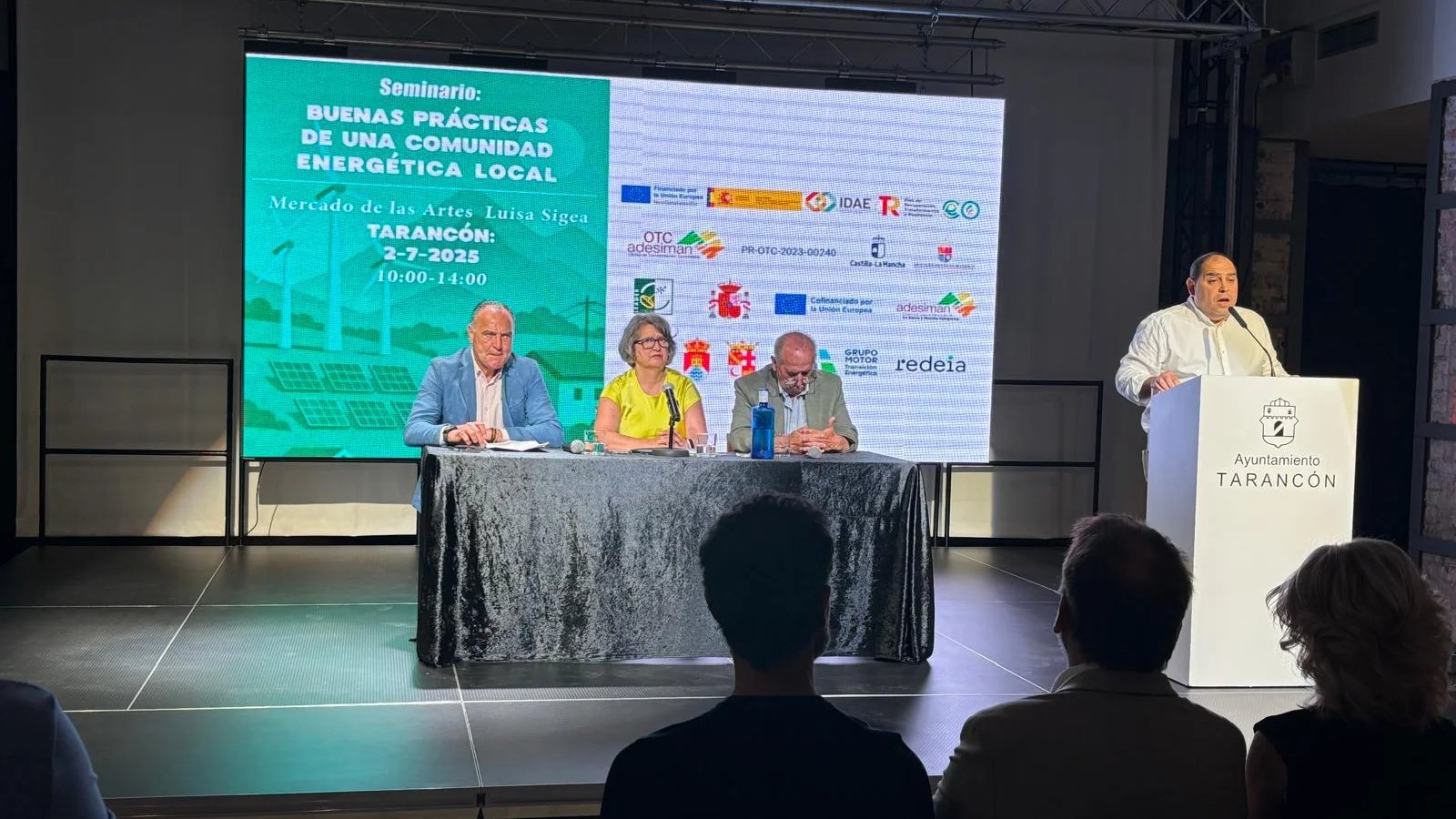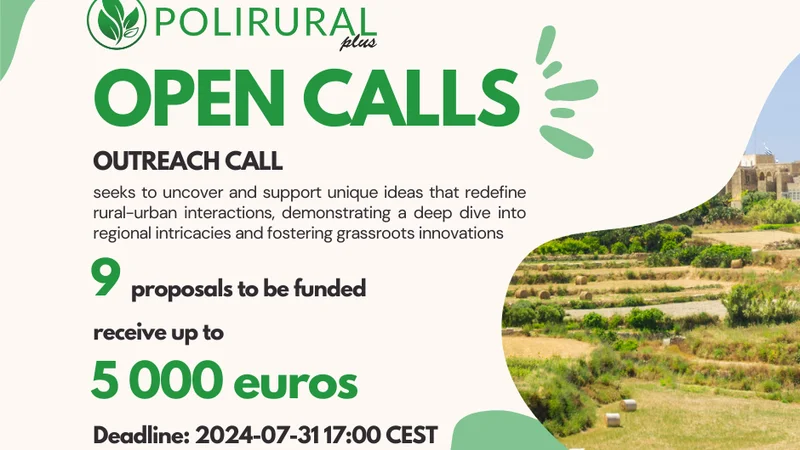Tarancón, July 2, 2025 – As the Spanish pilot site of the European PoliRuralPlus project, the Local Action Group ADESIMAN hosted the seminar “Best Practices in Local Energy Communities” at the Luisa Sigea Arts Market in Tarancón. This key event reaffirmed the rural world’s commitment to a fair, participatory, and sustainable energy transition.
Organized by ADESIMAN through its Community Transformation Office (OTC), the event received strong support from the Government of Castilla-La Mancha, the Provincial Council of Cuenca, and numerous Local Action Groups (GDR) across the region, consolidating a strategic alliance to democratize energy from the ground up.
The opening session featured speeches by María Mercedes Gómez Rodríguez, Regional Minister for Sustainable Development; José Manuel López Carrizo, Mayor of Tarancón; and Víctor Jiménez Ruiz, President of ADESIMAN, who emphasized “the pivotal role of ADESIMAN as a driving force for sustainable solutions built from the villages and for the villages.” Other institutional figures present included Jesús Ortega, President of RECAMDER, and Marian López, the Regional Government Delegate in Cuenca.
Throughout the day, participants highlighted how the energy transition in Castilla-La Mancha is gaining momentum in rural areas thanks to the direct involvement of Local Action Groups. ADESIMAN, as both host and national reference in this field (and as the official Spanish pilot of PoliRuralPlus) has led this shift with a clear vision: to place energy in the hands of citizens and communities, promoting local participation, efficiency, savings, and energy justice.
The seminar was also attended by numerous mayors from the ADESIMAN territory and neighboring regions, as well as engaged local residents. The event also welcomed financial sector representatives, including Eliseo Quejigo, Regional Director of Globalcaja, and Emiliano Cuenca, Deputy Director of the bank’s Tarancón branch, signaling growing interest from the financial community in supporting sustainable rural initiatives.
A key moment of the day was the roundtable discussion on the future of community energy, featuring prominent voices such as Alipio García Rodríguez (General Director for Energy Transition of the Regional Government), Juan Ávila Francés (Head of Social Innovation at Redeia), and Juan Pedro Salas Arqueros (Manager of ADESIMAN). All panelists agreed: “Villages not only can, but must lead the energy transition, turning rooftops, public buildings, and local communities into spaces of energy sovereignty.”
Another highlight was the presentation by Jorge Font Félix, Director of ADESIMAN’s OTC, who showcased the progress made in developing real, functioning community energy projects, built on participatory methods, social innovation, and technical efficiency. In the same spirit, rural innovation expert Juan Carlos Casco, coordinator of the seminar’s Working Group, offered a compelling keynote on the future of rural areas and the potential of energy communities as engines of development, cohesion, and territorial resilience.
The seminar also featured active participation from other Local Action Groups across Castilla-La Mancha, building a cooperative network among territories facing the same challenges and opportunities. This alliance proves that the combination of institutional leadership from the regional government and the provincial council, together with the grassroots capacity of the GDRs, is already yielding tangible results in the form of exemplary community energy models.
The day concluded with an institutional toast and informal networking session, reaffirming the message that the energy transition must be rural -or it will not happen. Castilla-La Mancha, with its Local Action Groups at the forefront and ADESIMAN as a European pilot within PoliRuralPlus, is poised to become a national and international model for bottom-up transformation.



